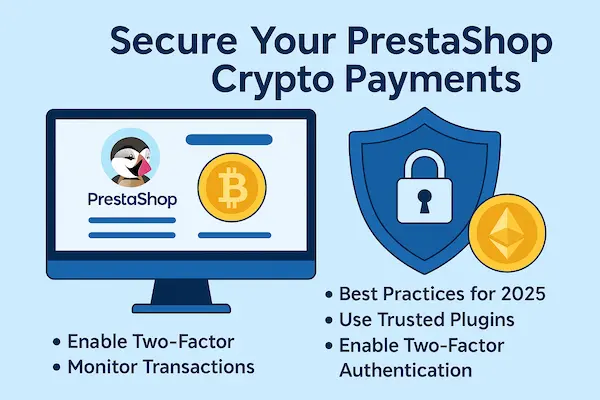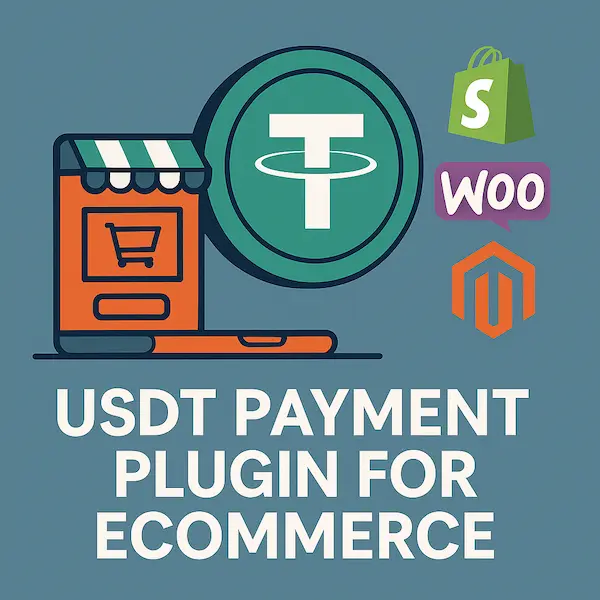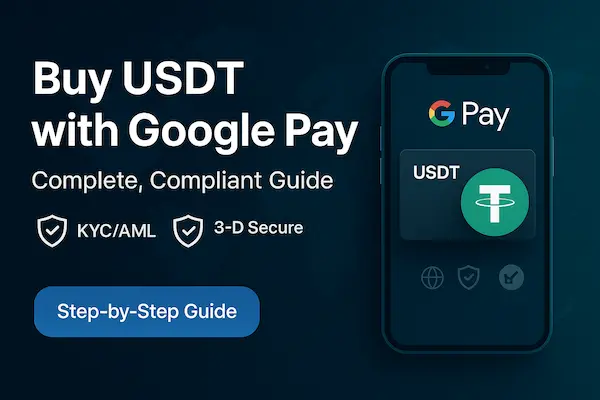In 2026, a simple yet powerful question is on the minds of many business owners: Can I accept crypto as payment? As digital currencies move beyond speculation and gain mainstream acceptance, merchants worldwide are exploring how to integrate crypto payments into their businesses. From Bitcoin to stablecoins like USDT and USDC, cryptocurrencies offer faster settlements, lower fees, and borderless transactions. However, the rise of Central Bank Digital Currencies (CBDCs) and increasing regulations make this decision more complex than ever.
Understanding the benefits, challenges, and legal considerations of accepting cryptocurrency payments is essential for businesses looking to stay ahead in the ever-evolving digital landscape.
Contents
- 1 1. Can i accept crypto as payment? What are the steps?
- 2 2. Crypto payments for business
- 3 3. How to accept cryptocurrency payments as a business
- 4 4. Can Any Business Accept Crypto As Payment?
- 5 5. Challenges & Risks of Accepting Crypto As Payment
- 6 FAQs: Can I Accept Crypto As Payment?
- 7 Conclusion – Can I Accept Crypto As Payment in 2026?
1. Can i accept crypto as payment? What are the steps?
As more businesses explore the idea of accepting crypto as payment, the main question remains “Can I accept crypto as payment?” To answer this, businesses need to understand the legal, financial, and technological implications of integrating crypto into their payment systems. Key factors to consider include:
- Transaction Security: Ensuring safe and secure crypto transactions.
- Exchange Rates: Managing the fluctuation of cryptocurrency values.
- Compliance: Navigating regulatory requirements for crypto payments.
By understanding these elements, businesses can confidently decide if accepting cryptocurrency is a viable option, creating new growth opportunities but requiring careful planning and implementation.

2. Crypto payments for business
The rise of crypto payments is becoming increasingly evident as businesses adopt them to streamline transactions. Cryptocurrency payments accelerate processing times and reduce charges compared to traditional payment methods. By embracing crypto payments, businesses can tap into new markets, connecting with technology-driven clients around the world. However, businesses must navigate regulatory hurdles and ensure secure payment processing.
The security of crypto payments is one of the key reasons businesses are choosing to integrate them. The decentralized nature of blockchain technology provides greater transparency and protection against fraud, making it an attractive option for modern businesses.

Blockchain
Blockchain operates on an open, decentralized ledger system that records transactions across a network of computers. Each block in the chain is confirmed by network participants before it becomes part of the blockchain. This ensures transparency, security, and data immutability—meaning that once a transaction is recorded, it cannot be altered or erased.

Cryptocurrency
A crypto payment gateway is defined as a digital currency system where transactions are secured using cryptography. Unlike traditional fiat currencies, cryptocurrencies operate on decentralized networks built on blockchain technology, ensuring transparency, security, and efficiency. While cryptocurrencies remain an investment option with volatility, their growing acceptance offers opportunities for businesses to reach new customers and expand globally.
Nodes and miners
In the blockchain ecosystem, nodes and miners play critical roles in maintaining the integrity of the network. Nodes are individual computers that confirm transactions and distribute them across the network, ensuring the blockchain’s accuracy. Miners validate and add new transactions to the blockchain by solving complex mathematical puzzles, earning cryptocurrency rewards in the process. This decentralized model ensures that transactions remain secure and that the blockchain operates efficiently.
Public addresses and private keys
To facilitate crypto payments, businesses and users rely on public addresses and private keys:
-
Public Address: Similar to a bank account number, a public address is used to receive cryptocurrency.
-
Private Key: A private key is like a password that gives access to the crypto wallet. It’s crucial to protect the private key, as losing it means losing access to the associated funds.
By securing both the public address and private key, businesses can ensure safe and reliable crypto payments.

Wallets
Crypto wallets are important devices for keeping and running digital currencies safely. They exist as hardware, software and mobile wallets of varying degrees of security and comfort. Your requirements for accessibility versus asset protection define which wallet is best.
Cryptocurrency payment gateway
A cryptocurrency payment gateway is a technology that enables transactions using digital currencies. It allows for the acceptance of payments in various cryptocurrencies by businesses and can convert them into local currencies if required. The gateway provides a secure, efficient transaction processing for crypto payments, which acts as a link between conventional finance and digital possessions.
3. How to accept cryptocurrency payments as a business
Following steps are involve in accepting cryptocurrency payments in a business.
Step 1 – Select your provider
To succeed, selecting the right provider for accepting cryptocurrency payments is crucial. When choosing a cryptocurrency payment gateway, consider transaction costs, the cryptocurrencies supported (such as Bitcoin, Ethereum, or stablecoins), and the security measures in place. A well-selected provider simplifies the payment process, ensuring that both you and your customers have a seamless experience when making or receiving payments.
Step 2 – Integrate into your website
To accept cryptocurrency payments on your website, you’ll need to integrate a reputable cryptocurrency payment gateway that supports multiple digital currencies. This usually involves adding the payment gateway’s API to your checkout process and ensuring secure transaction handling. Proper integration will make it easy for customers to pay with crypto and increase their confidence in purchasing from you.

Step 3 – Optimise for conversion
Optimizing for conversion is critical to ensure the cryptocurrency payment process is fast and easy for your customers. Simplify the checkout flow, minimize transaction times, and provide clear instructions for users. By offering a smooth, quick, and user-friendly crypto payment experience, you’ll increase customer satisfaction and improve your chances of successful transactions.
Step 4 – Payment selection
When deciding to accept cryptocurrency payments, it’s important to choose which cryptocurrencies you will support. Consider factors such as transaction fees, security features, and the gateway’s ability to integrate seamlessly with your existing systems. By accepting a range of cryptocurrencies, you’ll appeal to a broader customer base and enhance the efficiency of payment processing.
Step 5 – Checking payment details
Before accepting a cryptocurrency payment, it’s important to verify payment details for accuracy and security. This includes checking wallet addresses, transaction amounts, and network verifications. Being meticulous with these details helps prevent mistakes or fraud, ensuring that payments are processed smoothly and correctly.
Step 6 – Making the payment
When your business receives cryptocurrency payments, you’ll need a secure online wallet and payment channels to process these transactions. It’s important to manage transaction confirmations effectively and remain flexible to the sometimes unpredictable nature of cryptocurrency. Establishing a smooth and efficient process for managing payments ensures customer satisfaction and operational efficiency.
Step 7 – Payment processing
Payment processing in cryptocurrency payments involves embedding a secure system for the effective management of digital transactions. Choose a trusted payment processor that offers crypto-to-fiat conversion options and adheres to legal regulations. A well-structured payment system reduces transaction costs, ensures faster payments, and improves customer satisfaction.

Step 8 – Confirmation
To make sure that the payment in cryptocurrency has successfully been received and processed requires verification. By checking this, any inconsistencies can be identified because both transaction details and expected amount will correspond with each other. Therefore, proper confirmation is necessary to maintain accuracy in transactions as well as customer faith.
Step 9 – Settlement
Depending on how a business decides to do it, settlement in accepting cryptocurrency payments may involve converting digital currencies into money or maintaining them as crypto assets. This would mean that one needs to pay attention to transaction charges, conversion rates, and timings so that there is not an error in reporting the finances. The best way of conducting settlement ensures that risks are met appropriately and financial stability is maintained.

4. Can Any Business Accept Crypto As Payment?
Yes, almost any business today can integrate cryptocurrency payments. To understand how this works in practice, let’s break it down into different business types and scenarios.
Small Businesses and Local Shops
Even small merchants such as cafés, restaurants, and boutiques can accept crypto payments. By using QR-code based wallets or mobile POS apps, these businesses can receive Bitcoin, USDT, or USDC directly from customers. It’s fast, secure, and doesn’t require a large IT team.
E-Commerce and Online Stores
For online businesses, the process is even easier. Platforms like Shopify, WooCommerce, and WordPress support plugins from crypto payment gateways. With just a few clicks, an e-commerce store can start accepting stablecoins to attract international buyers and reduce credit card fees.
Travel, Hotels, and Hospitality
The travel sector is one of the biggest adopters of crypto. A travel agency or hotel that accepts crypto can attract global customers who prefer to pay in stablecoins instead of dealing with costly currency exchange. This trend is especially strong in regions like Asia and Europe where tourism is booming.
Gaming and Entertainment Platforms
Online casinos, gaming companies, and digital content platforms often lead the way in adopting crypto. They benefit from the borderless nature of digital payments and the popularity of crypto among younger, tech-savvy audiences.
Large Enterprises and Corporations
Bigger companies can also accept crypto as payment, but they need to address compliance and reporting standards. When a multinational brand asks, “Can I accept crypto as payment at scale?” the answer is yes—but they must implement stricter KYC, AML, and tax reporting frameworks.
5. Challenges & Risks of Accepting Crypto As Payment
When business owners ask “Can I accept crypto as payment?”, the answer is yes, but it also comes with challenges that must be carefully managed.
Regulatory Uncertainty
Rules around cryptocurrency payments are different in each country. Some governments encourage adoption, while others impose strict KYC and AML requirements. Businesses that accept crypto payments must stay updated to remain compliant.
Price Volatility
Bitcoin and Ethereum are highly volatile. Their value can change within minutes, making it risky for merchants to hold them. Stablecoins such as USDT or USDC reduce this problem, but they still require a clear settlement plan.
Custodial vs Non-Custodial Risks
If you use a custodial crypto payment gateway, the provider temporarily holds your funds, creating a dependency on their security and solvency. Non-custodial solutions give you full control but require more technical knowledge to manage safely.
Technical Complexity
Integrating APIs, setting up wallets, and training staff can be challenging for small businesses. A user-friendly gateway can simplify the process, but preparation and education are still needed.
FAQs: Can I Accept Crypto As Payment?
1. Can I accept crypto as payment legally in 2026?
Yes, in most countries businesses can accept crypto as payment, but rules differ by region. Merchants should check local laws and follow tax and compliance requirements.
2. Which cryptocurrencies are best for business payments?
Stablecoins like USDT and USDC are the most practical because they keep a stable value, unlike Bitcoin or Ethereum which are more volatile.
3. How do I accept crypto payments on my website?
The easiest way is to use a crypto payment gateway such as XaiGate, BitPay, or Coinbase Commerce. These platforms provide plugins or APIs for fast integration.
4. Do small businesses benefit from accepting crypto?
Yes. Even small shops and e-commerce stores can accept crypto payments to reach global customers and reduce transaction fees.
5. What are the risks of accepting cryptocurrency?
The main risks include price volatility, regulatory uncertainty, and security issues when using custodial wallets. Choosing stablecoins and trusted gateways helps reduce these risks.
6. Can crypto payments be converted into fiat instantly?
Yes, many gateways allow merchants to auto-convert crypto into USD, EUR, or local currency, ensuring stability in revenue.
7. Is it expensive to accept cryptocurrency payments?
No. Fees are usually 0.5% to 1%, much lower than traditional card processing fees of 2–5%.
8. Which industries benefit most from crypto payments?
Travel, e-commerce, gaming, and hospitality are leading industries where merchants ask “Can I accept crypto as payment?” and successfully attract new global customers.
Conclusion – Can I Accept Crypto As Payment in 2026?
In conclusion, the question to ask oneself is “Can I accept crypto as payment?” Therefore, the possibilities for making payments using cryptocurrency have been considered by an increasing number of businesses today. Accepting cryptocurrency allows companies to diversify their clientele and reduce transaction costs. Nevertheless, risks should be evaluated against benefits while adhering to the law. In summary, when adequately set up and managed, receiving payments in crypto can play a significant role in your business growth plans.
At the same time, it is important to stay aware of regulatory changes. Governments are updating tax rules and compliance requirements almost monthly, making this a hot topic for both entrepreneurs and financial media. This ongoing evolution is why the question of accepting cryptocurrency payments is appearing not just in boardrooms, but also in Google News headlines worldwide.
Businesses that act early will have an advantage: lower fees, faster transactions, and access to millions of new customers who prefer digital currency. Waiting too long could mean falling behind competitors who already market themselves as crypto-ready.
Quick Summary Table
| Question | Key Insight |
|---|---|
| Can I accept crypto as payment? | Yes, businesses of all sizes can integrate crypto through secure gateways. |
| Which coins are best? | Stablecoins like USDT and USDC reduce volatility risks. |
| What are the benefits? | Lower fees, global reach, faster settlements, fraud protection. |
| What are the risks? | Regulations, volatility, custodial wallet dependency, technical integration. |
| Is it legal? | Yes, in most countries, but compliance with tax and AML laws is essential. |
If you are asking “Can I accept crypto as payment?” the next step is simple—start today. With a trusted gateway like XaiGate, your business can process USDT and USDC payments securely, reduce costs, and expand globally with confidence.
Don’t wait until your competitors take the lead.
Begin accepting stablecoin payments now and position your business for the future of commerce.
For daily updates, subscribe to XAIGATE’s blog!
We may also be found on GitHub, and X (@mxaigate)! Follow us!









